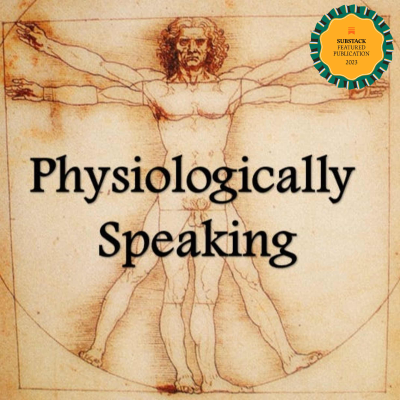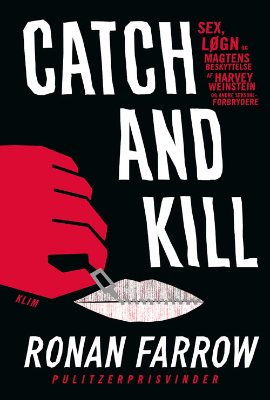
Physiologically Speaking
Podcast af Brady Holmer
Begrænset tilbud
1 måned kun 9 kr.
Derefter 99 kr. / månedIngen binding.

Mere end 1 million lyttere
Du vil elske Podimo, og du er ikke alene
Rated 4.7 in the App Store
Læs mere Physiologically Speaking
A weekly podcast highlighting recent research in science. www.physiologicallyspeaking.com
Alle episoder
27 episoderDr. Nicholas Fabiano [https://x.com/NTFabiano] is a psychiatry resident at the University of Ottawa and a rising voice in the field of lifestyle psychiatry. With a background in applied life sciences and medical training at the University of Ottawa, he has developed a passion for understanding how exercise, nutrition, and sleep influence mental health. Featured in outlets such as The Washington Post and Fast Company, Dr. Fabiano has been recognized as a “rising star” in neuroscience [https://www.uottawa.ca/en/news-all/psychiatry-resident-dr-nicholas-fabiano-profiled-rising-star-new-neuroscience-journal?utm_source=chatgpt.com] for his evidence-based approach to mental health. In this conversation, Dr. Fabiano joins me to discuss the multifaceted role of creatine, particularly its implications for brain health, cognitive function, and mental health. We focus on a review article he just published titled "Creatine for the Brain: More is Likely Better for Brain Bioenergetics, Health, and Function,” [https://jpbs.hapres.com/htmls/JPBS_1766_Detail.html] in which he argues that 10 grams or more of creatine per day may be the optimal dose for cognitive performance and mental health. He emphasizes the importance of understanding dosing, the potential benefits of creatine in various conditions such as sleep deprivation, traumatic brain injury, Alzheimer's disease, and depression, and the need for more research to optimize creatine supplementation and its mechanisms of action in the brain. Follow Nick on X: @ntfabiano [https://x.com/NTFabiano] Follow Nick on Instagram: @ntfabiano [https://www.instagram.com/ntfabiano/?hl=en] This is a public episode. If you'd like to discuss this with other subscribers or get access to bonus episodes, visit www.physiologicallyspeaking.com/subscribe [https://www.physiologicallyspeaking.com/subscribe?utm_medium=podcast&utm_campaign=CTA_2]
In this video, I chat with Kristi Storoschuk, a PhD candidate in muscle physiology at Queen’s University. She’s actively involved in research on high-intensity interval training, mitochondria, glucose regulation, and lactate. Kristi joined me to talk about her recent review article titled Much Ado About Zone 2: A Narrative Review Assessing the Efficacy of Zone 2 Training for Improving Mitochondrial Capacity and Cardiorespiratory Fitness in the General Population [https://pubmed.ncbi.nlm.nih.gov/40560504/], in which she questions the bold claims made about the superiority of zone 2 training for improving mitochondrial capacity, fat oxidation, cardiorespiratory fitness, and general health outcomes. It’s a must-read. * Follow Kristi on X @k_storoschuk [https://x.com/k_storoschuk] * Follow Kristi on Instagram @krististoroschuk [https://www.instagram.com/krististoroschuk/?hl=en] This is a public episode. If you'd like to discuss this with other subscribers or get access to bonus episodes, visit www.physiologicallyspeaking.com/subscribe [https://www.physiologicallyspeaking.com/subscribe?utm_medium=podcast&utm_campaign=CTA_2]
On Monday, I spoke to the Bone Health & Osteoporosis Foundation's ‘Be Bone Strong’ NYC & Sydney Marathon Teams for an in-depth discussion on how to train smarter, recover better, and boost performance at any age. Thanks to Barbara Grufferman [https://x.com/BGrufferman] for the invitation and opportunity to speak. She’s graciously allowed me to share the webinar with my audience. Enjoy! Topics covered: * Recovery after stress fractures * Flexible training strategies that protect performance * How to improve speed without risking injury * Pacing tips for race day success * Age-related adaptations and smarter recovery for older runners * Heat training and travel prep for international races * Creatine: what kind, how much, and when to take it * Nutrition timing for energy and performance * Electrolytes, hydration, and marathon fueling * Pros and cons of ice baths, compression boots, and NSAIDs * VO₂ max: what it is and how to raise it * Why "physiological resilience" matters * Sleep, glycogen, and why gels matter mid-race * And more! This is a public episode. If you'd like to discuss this with other subscribers or get access to bonus episodes, visit www.physiologicallyspeaking.com/subscribe [https://www.physiologicallyspeaking.com/subscribe?utm_medium=podcast&utm_campaign=CTA_2]
This interview was originally published on September 24, 2024. David Roche is a decorated trail runner, coach, and co-founder of SWAP Running. He's a two-time national champion and a three-time Team USA member, and he recently set the course record at the Leadville 100 trail run with a time of 15 hours, 26 minutes, 34 seconds. David and his wife, Megan Roche, M.D., offer coaching that blends science, training theory, and a philosophy of joy and long-term growth for all athletes. Megan just launched a website—Huzzah [https://www.thehuzzahhub.com/about]—“to empower female endurance athletes by providing accessible sports science knowledge and fostering a love for sport through content, insights, and scholarships, with a focus on supporting overall health, education, and competitive edge.” I’ve become a bit obsessed with how David thinks about running and how invested he and Megan are in reading and implementing the science of training and racing. So I needed to nerd out with him on some topics. In this interview, I picked David’s mind about his scientific approach to training, and we detail several of the training practices he used in his buildup to the race, including: Sodium bicarbonate Downhill running High-carb fueling Super shoes Post-exercise exogenous ketones Heat training/hot water immersion Caffeine Heart rate zones And more! Relevant links For more details about David and SWAP Running, visit their About Us page [https://swaprunning.com/about-us-1] Follow David on X @MountainRoche [https://x.com/MountainRoche] Watch the documentary about David’s record: Leadville 100 Ultramarathon & David Roche's Run for The Impossible Record [https://www.youtube.com/watch?v=B6k6XgHeSCI] and the other kick-ass videos he posts about training on his YouTube channel. This is a public episode. If you'd like to discuss this with other subscribers or get access to bonus episodes, visit www.physiologicallyspeaking.com/subscribe [https://www.physiologicallyspeaking.com/subscribe?utm_medium=podcast&utm_campaign=CTA_2]
Welcome to the recap of my first live subscriber Q&A! It was a lot of fun connecting with you all and answering your thoughtful questions. In this post, I’ll walk through the key topics we discussed, including my marathon training approach, supplement routine, fueling strategies, and more. Thank you Zach Bitter [https://substack.com/profile/9475840-zach-bitter], Esther VanderMark [https://substack.com/profile/132260901-esther-vandermark], dr_cois [https://substack.com/profile/4967775-dr_cois], Barbell Mentality [https://substack.com/profile/60721451-barbell-mentality], and many others for tuning into my live video! Join me for my next live video in the app. Table of contents * My Training Philosophy: Running Less, Biking More * My Supplement Routine (and Philosophy) * Fueling for Long Runs and Marathons: How I Changed My Approach * Live Q&A Questions * Have you experienced low blood sugar or bonking during runs? * What’s your advice for returning to running after an injury? * Does cycling help build your aerobic base for running? * What are your thoughts on nitrate supplements like beetroot juice? * What’s your approach to warming up before races and workouts? * Do you lift after long runs or interval workouts? * What do you think about concerns over eating high amounts of carbs during marathons? * How does race-day nutrition affect your recovery afterward? * If I’m a slower marathoner, should I train differently than you? * What’s your approach to returning to training after illness? * Is cycling useful even if your running mileage isn’t maxed out yet? * How does L-glutamine help with gut health? My Training Philosophy: Running Less, Biking More One of the most common questions I get is about how I structure my training week, particularly how I balance running and cycling. For my Boston Marathon build, I chose to run five days per week and ride the bike two days per week. This approach stems from years of battling injuries, particularly bone stress injuries. Every time I tried running six or seven days per week—even at moderate mileage—I seemed to get hurt. To avoid that, I started squeezing more mileage into fewer running days, reaching 75 to 85 miles per week while running just five days. On the two non-running days, I cycled for 90 minutes to two and a half hours using Zwift. Cycling allowed me to maintain a high aerobic load without the musculoskeletal strain of running. Having two full days without running each week seemed to give my body the time it needed to recover and regenerate. I felt fresher on all my runs and stayed injury-free throughout the training block, which hadn't been the case in past training cycles. My Supplement Routine (and Philosophy) Supplements are something I get asked about all the time, and during the Q&A, I walked through my current supplement stack. I take a fairly extensive range of supplements, but my general philosophy is simple: if you have the discretionary income and a curiosity to experiment, supplements can be worth exploring. Each morning, I start with a whey protein shake, usually mixing 20 to 30 grams of whey protein with almond milk. I add a greens and probiotic powder, and I take L-glutamine daily, mostly for gut health and immune support. Creatine monohydrate is also a daily staple, as is an omega-3 supplement, iron (to correct low ferritin), and vitamin D3. I also occasionally use ashwagandha to support stress adaptation. Supplements aren’t magic, but they can help support an already solid foundation of training, nutrition, and sleep. Fueling for Long Runs and Marathons: How I Changed My Approach Fueling during training runs and races has been one of the biggest shifts in my approach over the past year. Previously, I barely fueled during runs, often going fasted. Now, for most morning runs, I eat a small snack about 30 to 45 minutes beforehand. During long runs or runs over 90 minutes, I take energy gels every 30 to 40 minutes. Science in Sport Beta Fuel gels have been my favorite because of their high carbohydrate content and easy consistency. Proper fueling has made a noticeable difference not just in performance but also in recovery. By ending long workouts with a smaller energy deficit, my next-day performance has been consistently better. Live Q&A Questions Have you experienced low blood sugar or bonking during runs? Yes, especially after I started eating before runs. I experienced mild reactive hypoglycemia about three miles into runs, which I confirmed using a continuous glucose monitor. It turned out the timing of my pre-run snack was causing a dip in blood sugar. Adjusting the timing—either eating earlier (45–60 minutes before) or just minutes before starting—helped eliminate the issue. What’s your advice for returning to running after an injury? I recommend the walk-run method, regardless of experience level. Coming back slowly with a run-walk protocol reduces injury risk and helps you rebuild fitness without overwhelming your musculoskeletal system. Even elite runners use this strategy when returning from time off. Does cycling help build your aerobic base for running? Absolutely. Cycling has been a key part of maintaining and building my aerobic fitness while sparing my body from the pounding of running. Two days of cycling per week allowed me to maintain a high training load without increasing injury risk during my Boston build. What are your thoughts on nitrate supplements like beetroot juice? Nitrate supplements have strong evidence for enhancing performance, especially in clinical or less-trained populations. For highly trained athletes, the benefits are likely smaller but still potentially meaningful. They are safe and can also support cardiovascular health, so if you're curious, they are worth trying. What’s your approach to warming up before races and workouts? I’m a big believer in long, extensive warmups—typically 4–6 miles of easy running with some race-pace surges. You want to feel warm and ready when the race starts, not spend the first few miles getting into rhythm. A proper warmup can make a big difference in early race pacing and overall performance. Do you lift after long runs or interval workouts? Yes, but strategically. I usually lift after my Sunday long runs because it’s easier to stack hard efforts on the same day and allow easier recovery days afterward. I do my best to get into the gym immediately after the run while I’m still warm, even though it's not always easy. What do you think about concerns over eating high amounts of carbs during marathons? I think it's mostly fear-mongering. Race-day fueling is not the same as everyday eating. Consuming 80 grams of carbohydrates per hour during a marathon is performance-enhancing and supports recovery. There’s no strong evidence that race-day carb intake leads to metabolic disease when your daily nutrition is solid. How does race-day nutrition affect your recovery afterward? Proper fueling during the race has a huge impact on how you feel in the days afterward. After Boston, although I still had muscle soreness, my recovery was far smoother compared to previous marathons. I believe fueling adequately during the race played a major role in that. If I’m a slower marathoner (around four hours), should I train differently than you? Not drastically. You don’t need to run more hours per week, but your long runs should probably be longer in duration compared to mine. I would recommend aiming for three to three and a half hour long runs, even if your weekly mileage stays relatively modest. What’s your approach to returning to training after illness? Slow and steady. I focus first on building back volume at low intensity and delay introducing intensity until I feel fully recovered. Low-intensity walking, biking, or easy running can be good first steps before resuming hard efforts. Is cycling useful even if your running mileage isn’t maxed out yet? Definitely. Cycling can be a supplement to running even if you’re not at your maximum running volume. It’s an excellent tool to add more aerobic training stress without the same injury risks as running. How does L-glutamine help with gut health? L-glutamine may help support the gut lining and reduce gastrointestinal permeability, especially important during periods of heavy training or exercising in the heat. I’ve added it recently to help support digestion during intense marathon training blocks. Final Thoughts This Q&A was a blast. I’m so grateful for everyone who tuned in, asked thoughtful questions, and stayed engaged throughout the session. Going forward, I’m considering doing more Q&A sessions, maybe focused more narrowly on specific topics like fueling strategies, supplements, or injury prevention. If you have any feedback or ideas for future Q&As, I’d love to hear them. Thanks again for being part of this awesome community. I'll see you next time—whether it’s here, on X, or maybe even in real life! This is a public episode. If you'd like to discuss this with other subscribers or get access to bonus episodes, visit www.physiologicallyspeaking.com/subscribe [https://www.physiologicallyspeaking.com/subscribe?utm_medium=podcast&utm_campaign=CTA_2]

Rated 4.7 in the App Store
Begrænset tilbud
1 måned kun 9 kr.
Derefter 99 kr. / månedIngen binding.
Eksklusive podcasts
Uden reklamer
Gratis podcasts
Lydbøger
20 timer / måned

































